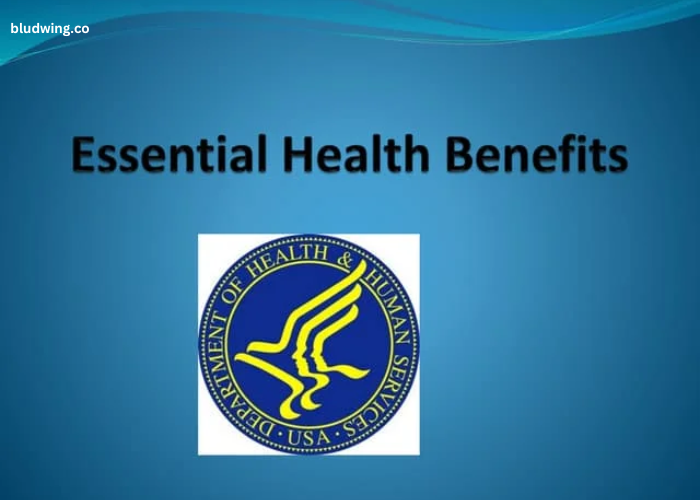In our fast-paced world, maintaining good health can sometimes feel overwhelming. However, there are two key factors that are within everyone’s control and can make a profound impact on overall well-being—balanced nutrition and regular exercise. When combined, these habits not only enhance physical health but also improve mental clarity, emotional stability, and longevity.
Balanced nutrition refers to a diet that provides all the essential nutrients the body needs to function at its best, while exercise is the physical activity that strengthens the body, improves cardiovascular health, and supports mental wellness. Together, they create a foundation for living a healthy, vibrant life. In this article, we will explore the essential health benefits of balanced nutrition and regular exercise, and how they can transform your well-being.
Key Points:
- Proper nutrition and regular exercise support overall health and longevity.
- Balanced nutrition strengthens the immune system and supports mental clarity.
- Regular exercise reduces the risk of chronic diseases and enhances emotional well-being.
How Balanced Nutrition Supports Health and Wellness
Balanced nutrition plays a pivotal role in fueling the body and maintaining good health. It provides the necessary nutrients to keep organs functioning, supports metabolism, and helps prevent various health issues. Here are some key health benefits of a balanced diet:
1. Promotes Optimal Energy Levels
A well-balanced diet provides the body with a steady supply of energy. Carbohydrates, proteins, and healthy fats are the primary sources of energy for the body. Complex carbohydrates found in whole grains, fruits, and vegetables provide long-lasting energy. Protein-rich foods like lean meats, legumes, and tofu help build and repair tissues, while healthy fats such as those found in avocados and nuts support brain function and provide sustained energy throughout the day.
By maintaining a balanced intake of these nutrients, the body can avoid energy crashes and fatigue, ensuring that you feel energetic and focused throughout the day.
2. Strengthens the Immune System
Nutrition plays a crucial role in supporting the immune system. Vitamins and minerals like vitamin C (found in citrus fruits) and zinc (found in nuts and seeds) are essential for immune function. These nutrients help the body defend against illness and infection by strengthening immune cells and improving the body’s ability to fight off pathogens.
A diet rich in fruits, vegetables, lean proteins, and whole grains provides a diverse array of vitamins, minerals, and antioxidants that support the immune system. For example, antioxidants found in berries and leafy greens help protect cells from oxidative stress and reduce inflammation.
3. Improves Digestion and Gut Health
Proper nutrition supports digestive health by promoting a healthy gut microbiome and ensuring the body gets the fiber it needs. Fiber-rich foods, such as vegetables, fruits, and whole grains, support regular bowel movements, prevent constipation, and maintain gut health.
Additionally, foods like yogurt, kefir, and fermented vegetables contain probiotics that support the growth of beneficial bacteria in the digestive tract, improving overall gut function. A balanced diet also reduces the risk of digestive issues like bloating, indigestion, and acid reflux.
The Health Benefits of Regular Exercise
Exercise is one of the most effective ways to improve overall health and quality of life. Whether you enjoy running, walking, swimming, or yoga, regular physical activity can help you feel better, look better, and live longer. Here are some essential health benefits of regular exercise:
1. Boosts Cardiovascular Health
One of the most significant benefits of exercise is its positive effect on heart health. Regular physical activity strengthens the heart, improving circulation and lowering the risk of cardiovascular diseases such as high blood pressure, heart disease, and stroke.
Aerobic exercises like running, cycling, or swimming improve heart health by increasing the heart’s efficiency at pumping blood, lowering bad cholesterol levels, and improving circulation. Additionally, regular exercise helps maintain a healthy weight, which reduces the risk of heart-related issues.
2. Supports Weight Management
Exercise is a critical factor in maintaining a healthy weight. Physical activity helps burn calories, build muscle, and increase metabolism, all of which contribute to weight management. When combined with balanced nutrition, regular exercise can help you achieve and maintain an optimal weight.
Strength training exercises, such as weightlifting, build lean muscle mass, which increases metabolism and helps the body burn more calories at rest. Cardiovascular exercises, like walking or jogging, help burn calories and improve overall fitness levels.
3. Improves Mental Health and Mood
Exercise has a direct impact on mental health. Physical activity stimulates the production of endorphins, the “feel-good” hormones that improve mood and reduce feelings of stress, anxiety, and depression. Regular exercise can help you manage emotions, improve self-esteem, and enhance cognitive function.
For example, a brisk walk or a yoga session can help alleviate anxiety and elevate your mood. Exercise has even been shown to be as effective as medication in some cases for treating mild to moderate depression.
How Nutrition and Exercise Work Together for Optimal Health
When combined, balanced nutrition and regular exercise create a powerful synergy that optimizes health. Proper nutrition fuels the body for physical activity, ensuring that exercise is effective and that the body can recover afterward. In turn, exercise helps the body better absorb and utilize the nutrients from food.
1. Enhances Exercise Performance
Nutrition plays a key role in maximizing exercise performance. Eating the right foods before and after a workout can improve endurance, reduce fatigue, and support muscle recovery.
Before exercise, consume a meal with carbohydrates and protein to fuel the body. For example, a banana and a handful of almonds can provide quick energy and sustain you during a workout. After exercise, eating protein helps repair muscle tissue and replenish energy stores. A chicken salad with quinoa and vegetables is a great post-workout meal.
2. Promotes Recovery and Reduces Inflammation
Both nutrition and exercise help the body recover faster. After a workout, your body needs protein to repair muscles and rebuild tissues. Carbohydrates are essential for replenishing glycogen stores, while healthy fats help reduce inflammation and promote tissue healing.
Nutrient-dense foods such as lean protein, leafy greens, and omega-3 fatty acids found in fish like salmon aid in reducing inflammation and speeding up recovery. Regular exercise, paired with proper nutrition, minimizes muscle soreness and enhances the body’s ability to heal.
Conclusion: The Essential Health Benefits of Nutrition and Exercise
Balanced nutrition and regular exercise are essential components of a healthy lifestyle. When combined, these habits improve physical, mental, and emotional well-being, supporting everything from heart health to mood regulation and weight management. By making healthy food choices and committing to regular physical activity, you can boost your energy, strengthen your immune system, and enhance overall quality of life.
Remember, small changes—such as incorporating more fruits and vegetables into your meals or taking a brisk walk daily—can have a significant impact on your health in the long run. Start today and reap the essential benefits of balanced nutrition and exercise for a healthier and happier life.
FAQ’s
1. How much exercise should I do each week for good health?
Aim for at least 150 minutes of moderate-intensity exercise per week, or 75 minutes of vigorous exercise. Include both aerobic and strength training exercises for optimal results.
2. Can nutrition affect my energy levels throughout the day?
Yes, a balanced diet provides steady energy. Foods like whole grains, lean proteins, and healthy fats help regulate blood sugar and prevent energy crashes.
3. How can exercise improve my mental health?
Exercise stimulates the release of endorphins, which improve mood, reduce stress, and alleviate symptoms of anxiety and depression.
4. What should I eat before and after exercise for optimal performance?
Before exercise, eat a balanced snack with carbohydrates and protein. After exercise, consume protein to support muscle recovery and replenish glycogen with carbohydrates.
5. Can regular exercise reduce the risk of chronic diseases?
Yes, regular physical activity helps prevent chronic diseases such as heart disease, diabetes, and obesity by improving cardiovascular health and maintaining a healthy weight.




